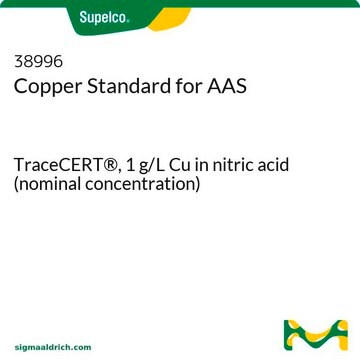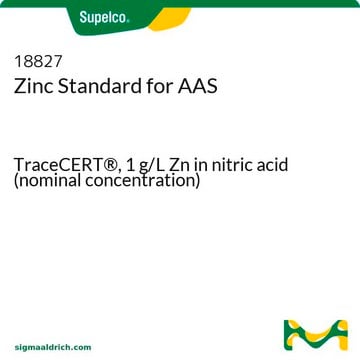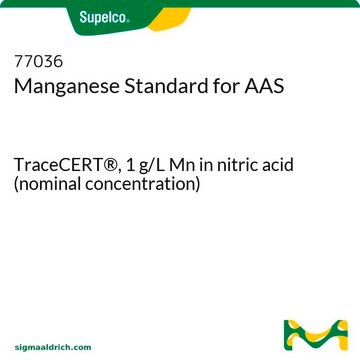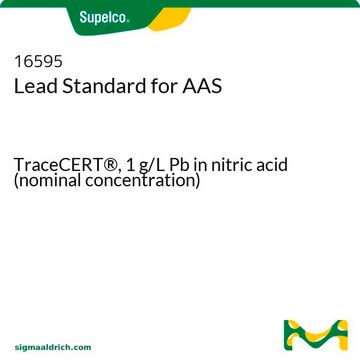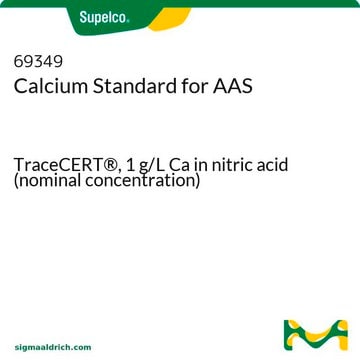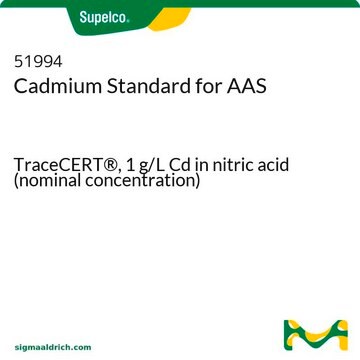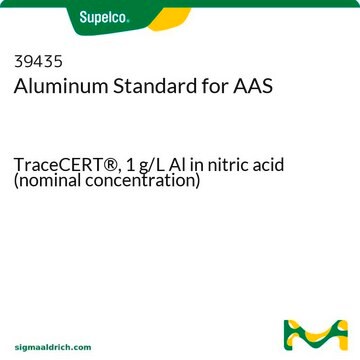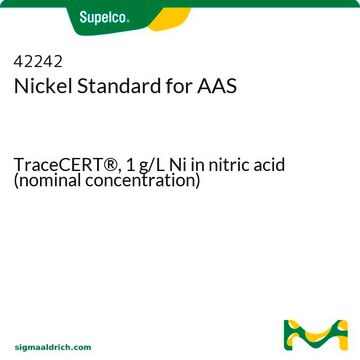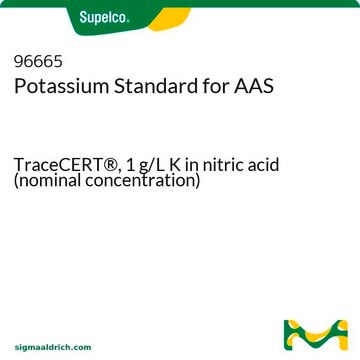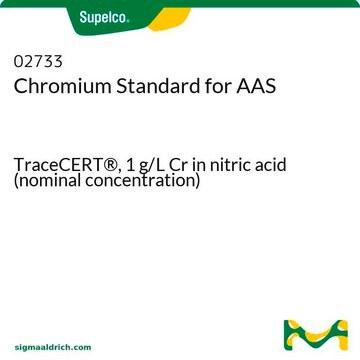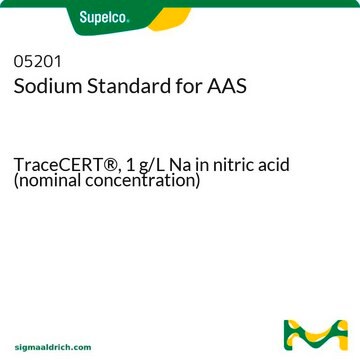16596
Iron Standard for AAS
TraceCERT®, 1 g/L Fe in nitric acid (nominal concentration)
Synonym(s):
Iron Standard for AAS (1 g/L Fe in 2% nitric acid)
About This Item
Recommended Products
grade
certified reference material
TraceCERT®
Quality Level
product line
TraceCERT®
concentration
1 g/L Fe in nitric acid (nominal concentration)
technique(s)
AAS: suitable
ICP: suitable
application(s)
industrial qc
pharmaceutical
format
single component solution
Related Categories
General description
Please visit ISO certificates and Site Quality Self-Assessments to access the current certificates of accreditation.
Download your certificate at http://www.sigma-aldrich.com to view certified values, including uncertainty and expiry date.
Application
Analysis Note
Other Notes
Legal Information
Signal Word
Warning
Hazard Statements
Precautionary Statements
Hazard Classifications
Eye Irrit. 2 - Met. Corr. 1 - Skin Irrit. 2
Storage Class Code
8B - Non-combustible corrosive hazardous materials
WGK
nwg
Flash Point(F)
Not applicable
Flash Point(C)
Not applicable
Personal Protective Equipment
Regulatory Listings
Regulatory Listings are mainly provided for chemical products. Only limited information can be provided here for non-chemical products. No entry means none of the components are listed. It is the user’s obligation to ensure the safe and legal use of the product.
ISHL Indicated Name
Substances Subject to be Indicated Names
ISHL Notified Names
Substances Subject to be Notified Names
JAN Code
16596-250ML-BULK:
16596-250ML:4548173350998
16596-BULK:
16596N-BULK:
16596-VAR:
Choose from one of the most recent versions:
Already Own This Product?
Find documentation for the products that you have recently purchased in the Document Library.
Customers Also Viewed
Our team of scientists has experience in all areas of research including Life Science, Material Science, Chemical Synthesis, Chromatography, Analytical and many others.
Contact Technical Service